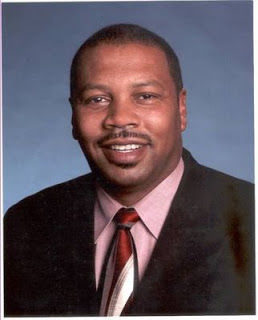It’s a right of the people
April 17, 2019
Nicholls students prepare meals for The Masters golf tournament
April 17, 2019A federal appeals court ruling in a Mississippi voting rights case – although arising from a different fact set – may provide clues to the future of a lawsuit brought against Louisiana by a local branch of the NAACP that is still before a trial judge.
Key facts and relevant arguments exist between the 5th Circuit Court of Appeals ruling last month in the case of Ayers et al v. Phil Bryant and Terrebonne NAACP v. Jindal et al, the local case that concerns how judges are elected in Terrebonne Parish.
But the 5th Circuit’s ruling in the Mississippi case, some observers maintain, makes clear that a circuit considered one of the most conservative in the nation – if not the most conservative – has little desire to overturn provisions in the voting rights act that apply to both. That is significant because opponents of a judge’s finding that the at-large scheme of judicial elections in Terrebonne violates the Voting Rights Act by diluting the strength of black voters as a bloc, rendering their choices of candidates useless when elections for local judges are held.
The Terrebonne case, now overseen by U.S. District Judge Shelly Dick, is entering a crucial phase. Dick has appointed a special master to give her recommendations for how the voting rights violation determined after an eight-day trial can be cured. The answer is likely to resemble a proposal brought forth by the NAACP attorneys, which provides for five sub-districts to be established in the 32nd Judicial District for elections of judges, one district for each division of court. One of those districts must have a majority of black voters. The attorney general and the governor were invited to file their own solutions, but none were forthcoming.
David R. Ely, one of two candidates proposed by the NAACP Legal Defense Fund, which is litigating the case for the Terrebonne Parish Branch of the NAACP and related plaintiffs, was the choice of Dick. She rejected the expert proposed by Attorney General Jeff Landry, one of the defendants. Ely is required to provide Dick with his proposed solution in June.
In the Mississippi case a state senate district in the Delta region was at issue because of allegations that the way it was drawn diluted black votes. The 5th Circuit was asked to strike down parts of a lower court’s decision favoring the plaintiffs that relied on a strict interpretation of the Voting Rights Act. In particular, the appeals court rejected the state’s belief in a demise of the plaintiff’s arguments through later appeals.
Arguments from the state, the majority of a three-judge panel ruled, conflicted with “unimpeachable authority” from the 5th Circuit regarding Section 2 of the Voting Rights Act. The 5th Circuit also approved of the district court’s Mississippi recommendation that the state legislature redraw lines of the conflicted district rather than rely on a court-constructed remedy. That was the route the late Judge James Brady, who delivered the verdict in the Terrebonne case, attempted to have litigants follow. But the Louisiana legislature last year nixed a bill supported by members of its Black Caucus which would have created the sub-districts, because it did not have the support of the Terrebonne delegation.
The attorney general as a matter of course is not commenting on matters related to the Terrebonne case. But Jerome Boykin, the Terrebonne NAACP president and one of the plaintiffs in the local case, says the Mississippi case’s fate is encouraging. If state officials end up appealing his case to the same circuit, they will face some of the same issues Mississippi has dealt with.
“The 5th Circuit ruled according to the law in the Mississippi case,” Boykin said. “That’s all we can ask for in our case, that the courts rule according to the law. And I believe we have a stronger case than the Mississippi case that African-American votes are being diluted. When we went to trial, we proved that African-American votes are being diluted. That’s why the judge made such a strong ruling in the way he did.” •






